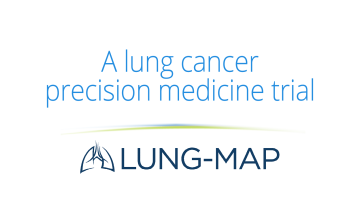Jack Aiello and His Mission to Educate Patients
Jack Aiello died last Saturday, July 13th, at the age of 74. He was at home, surrounded by family. Jack served as a patient advocate to SWOG’s myeloma research committee for a decade, until this past October, and he continued to serve SWOG as our advocate representative on the NCTN’s Accrual Core Team until his death.
The outpouring of memories, tributes, and real love and loss on myeloma and advocacy lists and social media this week speaks volumes about the scope and depth of Jack’s impact -- on myeloma patients, care providers, and researchers – and on the broader patient advocate community.
When he was diagnosed in 1995, he was told he could expect to live for only two to three years. Multiple courses of treatment would eventually get his myeloma under control but would also rob him of mobility to such an extent that in 2002 he had to leave his job and take medical disability, after which he devoted himself to advocacy – volunteering with myeloma organizations and directly supporting other patients with the disease.
I profiled Jack in this space two years ago, and the International Myeloma Foundation (IMF) – Jack worked with them for decades and served on their board of directors – has posted a wonderful tribute that outlines some of Jack’s countless contributions and roles as a patient advocate in myeloma.
Today, I want to try to honor Jack’s legacy by highlighting a topic that was particularly near to his heart as a patient advocate – patient education.
In counseling those newly diagnosed with myeloma, Jack’s primary advice was that they get educated about their disease.
Continual education was a mission for him, and he maintained an expert knowledge of the disease and the research landscape. He served as an educator for countless myeloma patients. For years, the IMF sponsored his attendance at the annual meeting of the American Society for Hematology (ASH), and Jack paid that forward, reporting what he learned for fellow patients and advocates in daily blog updates from the meeting and frequent social media posts about all aspects of the disease, clinical trials, and research results.
He also routinely wrote up what he learned at ASH and other professional meetings and shared those reports with the sizeable San Francisco Bay Area Myeloma Support Group he led for more than two decades, and with other patient support group leaders across the country.
In recent years, he dedicated the proceeds of his annual fund-raising campaigns to furthering IMF patient education initiatives in myeloma. Jack died while this year’s campaign was still underway, and if you would like to pay tribute to him – with words, donations, or both – I encourage you to visit https://fundraise.myeloma.org/jackseducationgrant.
His Twitter profile (@JackMAiello), with poetic concision, says much about who he was:
I was dx'd stage 3 myeloma in 1995 when my kids were 16, 14, & 10. I've walked my daughters down the wedding aisle and bounced 4 grandkids on my lap. Grateful!
We are grateful as well. Thank you, Jack.
ASH Abstracts Are Due:
A reminder that although ASH is accepting abstract submissions for the 2024 ASH Annual Meeting and Exposition through August 1, 2024, the deadline to submit ASH abstracts to the SWOG Publications Office is July 23, 2024, end-of-business ET. Abstracts must be sent to pubs@swog.org by this date to allow for authorship review and circulation to NCI and industry reviewers.
___________________________________________________
Trial of the Week
Patient Education: En español!
Today we highlight not one but 15 Trials of the Week – specifically, patient education materials for 15 trials.
In recent weeks, the NCI’s Central Institutional Review Board has approved Spanish-language translations of patient-friendly summaries for a number of our clinical trials. Those Spanish versions are now posted to the SWOG website and to CTSU.org.
Our trials that have CIRB-approved Spanish-language patient education materials are this week’s Trials of the Week:
- swog.org/S1703 Spanish-language version
- swog.org/S1900G Spanish-language version
- swog.org/S1900K Spanish-language version
- swog.org/S1914 Spanish-language version
- swog.org/S1925 Spanish-language version
- swog.org/S2010 Spanish-language version
- swog.org/S2101 Spanish-language version
- swog.org/S2108CD Spanish-language version
- swog.org/S2200 Spanish-language version
- swog.org/S2205 Spanish-language version
- swog.org/S2207 Spanish-language version
- swog.org/S2209 Spanish-language version
- swog.org/S2210 Spanish-language version
- swog.org/S2212 Spanish-language version
- swog.org/S2213 Spanish-language version
Expertly crafted plain-language education documents for introducing a trial to a prospective participant (crafted with input from our patient advocates) are available for all new SWOG trials shortly after activation. We’re working to provide Spanish-language versions of all summaries as well.
Other Recent Stories



